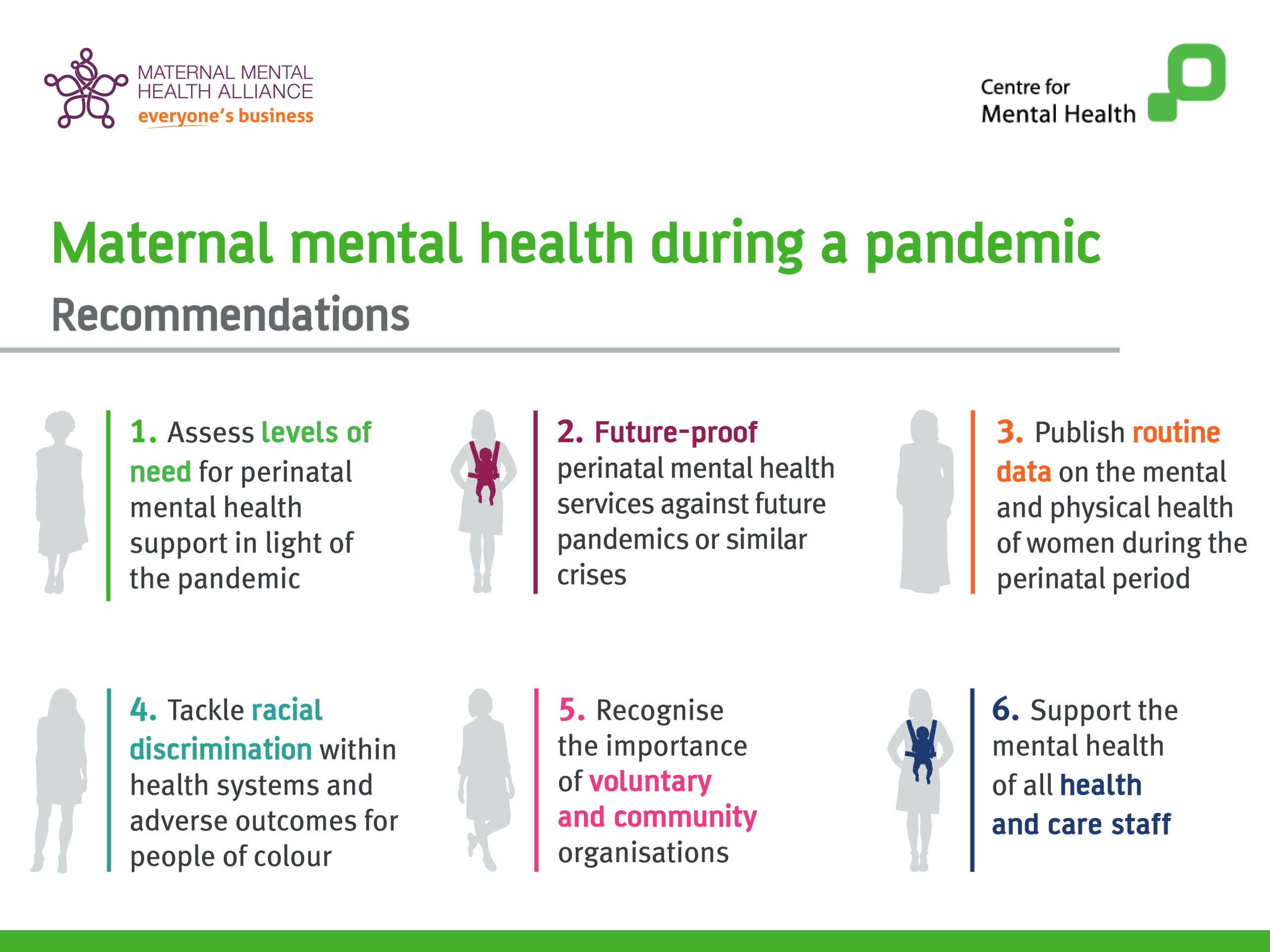Posted March 22nd 2021
The report draws together all of the available data collected during the pandemic for the first time.
The report findings show a significant increase in poor mental health for women in the perinatal period.
This was largely due to fears over catching the virus; worries over their baby’s wellbeing; fears over partners being able to attend labour and birth; and concerns about being able to cope without normal support available.
The report found that the impact of the pandemic on maternal mental health has been unequal, with evidence strongly suggesting that families experiencing socioeconomic deprivation, and women and families of colour, have been most affected.
Other key findings include the dramatic reduction in informal support available to families; concerns for infants and babies and the changes to labour and birth causing increased stress and anxiety; and despite the increased need – services supporting women and families were detrimentally impacted.
Significant concerns were also highlighted for women with pre-existing mental health conditions, and for the challenges that the workforce supporting women and families in the perinatal period is facing with its own wellbeing.
The evidence presented in the rapid evidence review highlights that the pandemic has created a mental health crisis for many women and their families in pregnancy and after the birth of their child.

Women have experienced a combination of lockdown, economic uncertainty, job insecurity, and the impact of the virus itself, coupled with a reduced ability to gain access to perinatal health services and mental health services.
This is likely to have long-term consequences for women and their families as well as for health services.
This crisis is current and ongoing, and the risk posed to perinatal mental health needs urgent and ongoing attention.
The report makes eight recommendations for urgent action to tackle some of these negative consequences for families. This includes calls for:
- Ministers/Members of the Senedd to protect and enhance services supporting perinatal mental health, including voluntary sector groups
- Relevant bodies to re-assess the true level of demand in light of the pandemic
- Research to be commissioned on the pandemic’s ongoing impact, including for women and babies of colour, and those from disadvantaged backgrounds.
It will be crucial within the next Senedd term to ensure that perinatal mental health is a key priority at the centre of long-term COVID-19 recovery planning.
Now more than ever, it is vital that urgent measures are taken to bridge gaps in support and ensure that women and their families across Wales get consistent, accessible and quality care for their mental health during pregnancy and postnatally.
Resources
- Maternal mental health during a pandemic– executive summary
- Maternal mental health during a pandemic– full report
- NCMH perinatal mental health information
If you have any questions or would like to find out more please email MMHA’s Everyone’s Business Wales Coordinator, Dr Sarah Witcombe-Hayes, at sarah@maternalmentalhealthalliance.org
Sign up now and receive new blog posts to your inbox.
